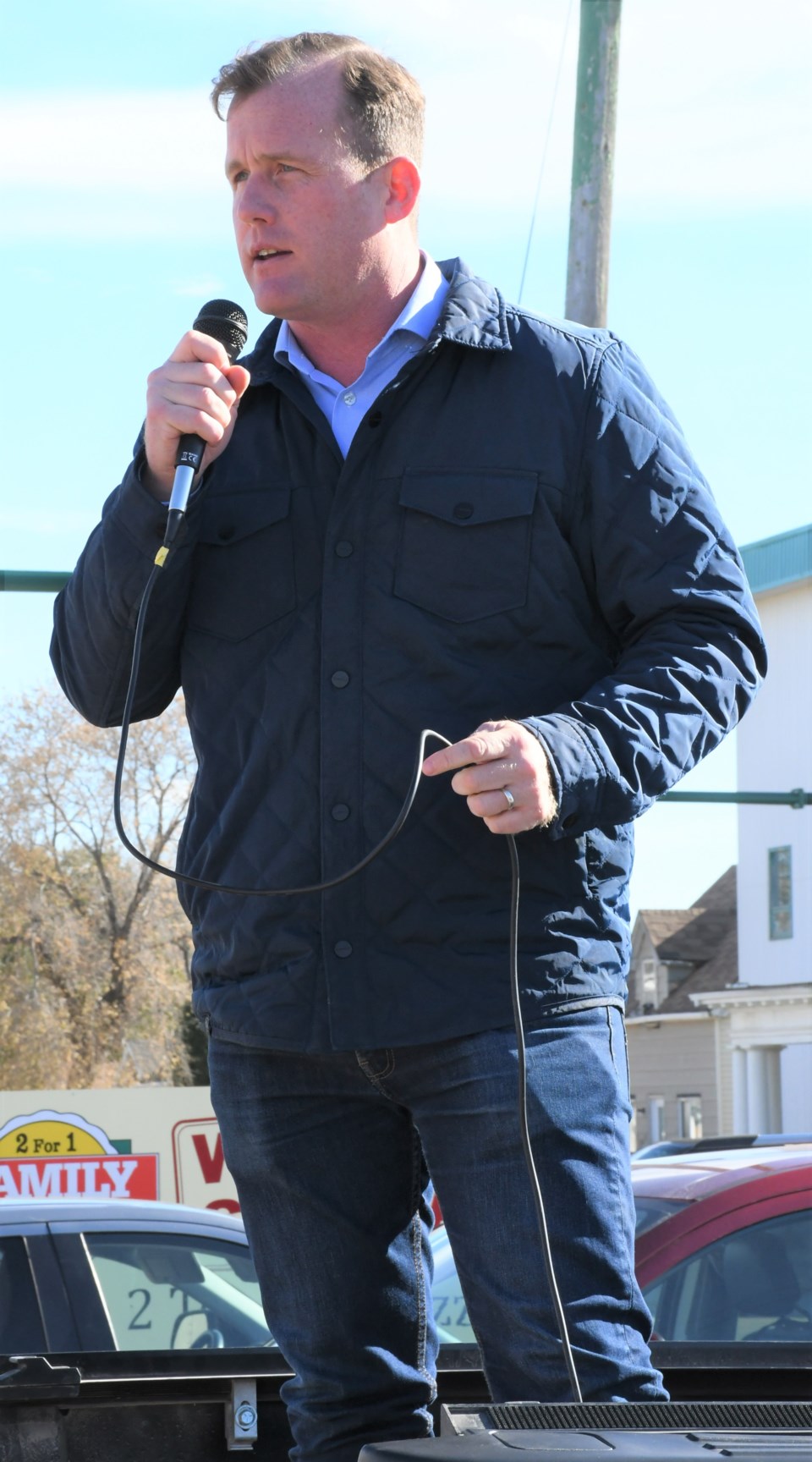On May 2, Ryan Meili, Official Opposition Leader, and Trent Wotherspoon, Opposition Finance Critic, proposed a windfall profit resource surcharge to deliver a cost-of-living dividend to Saskatchewan families to help address the affordability crisis — Premier Scott Moe said “no” immediately.
“There’s already a resource surcharge,” Wotherspoon said. “What we’re calling for is for an additional one (1) percent to be added when oil and potash are past a threshold that places them into windfall profits.”
Moe immediately dismissed the suggestion as a tax increase on resource industries that employ many people and generate a great deal of wealth for the province.
The NDP plan calls for an increase to the windfall profits surcharge when WTI oil prices go over $90 US per barrel and/or when potash prices exceed $700 CDN per K20 tonne.
If implemented, the increase could generate $250 million this year. Wotherspoon would like to see the money divided two ways: $125 million would be returned to Saskatchewan residents as a dividend (roughly $105 per person), while the other $125 million would function to cancel the controversial PST expansion set to take effect in October.
“What you’ll see right now in the earnings reports from both the potash companies and the oil companies are profits that are through the roof,” Wotherspoon said. “We want those industries to be highly profitable. But the owners of the resources — the Saskatchewan people — also deserve a dividend.”
Wotherspoon said the oil and potash companies are seeing record profits and are increasing dividends to their shareholders as a result.
“That’s fair,” he said, “and that’s good.”
But, he continued, with record profits, a fair return to the Saskatchewan people could make a meaningful difference in many lives both by giving out a bit of extra cash while also scrapping the PST expansion.
Moe suggested on Monday that the Sask Party would help Saskatchewanians by possibly increasing the minimum wage. The next day, the province did just that, announcing a plan to increase the minimum wage to $13 in October 2022; $14 in October 2023; and finally, a $15 minimum wage in 2024.
The Saskatchewan Federation of Labour (SFL), which has been lobbying for a $15 minimum wage for years, called the announcement a win.
However, the SFL was unhappy with the ramping plan and said on Twitter that “workers need a wage increase now. They shouldn't have to wait until 2024 for $15, especially when faced with record-high inflation.”
Wotherspoon called the government’s reaction to the NDP proposal disappointing, weak, and unprincipled.
“I just hope that the government comes to a better place on this,” he said. “What we’ve put forward is a common-sense proposal that will ensure the high profitability of these very important industries while delivering a better return for Saskatchewan people, and we’re ready to work and cooperate and be constructive on this front, and that’s our standing offer to government. We hope they take us up on it.”
Bronwyn Eyre, Resources Minister, said it was embarrassing and almost unbelievable to get a lesson in economics from “that side.” She joined forces with Moe in mocking the NDP for their alleged lack of realism and accused the Opposition of wanting to join forces with the federal Liberals to destroy the oil industry, put energy workers out of their jobs, and accelerate an economy-destroying green transition.




